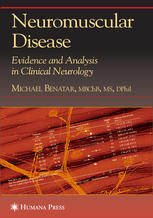

Most ebook files are in PDF format, so you can easily read them using various software such as Foxit Reader or directly on the Google Chrome browser.
Some ebook files are released by publishers in other formats such as .awz, .mobi, .epub, .fb2, etc. You may need to install specific software to read these formats on mobile/PC, such as Calibre.
Please read the tutorial at this link: https://ebookbell.com/faq
We offer FREE conversion to the popular formats you request; however, this may take some time. Therefore, right after payment, please email us, and we will try to provide the service as quickly as possible.
For some exceptional file formats or broken links (if any), please refrain from opening any disputes. Instead, email us first, and we will try to assist within a maximum of 6 hours.
EbookBell Team

0.0
0 reviewsEvidence-based medical practice stresses the examination of evidence from clinical research as the basis for clinical decision making, rather than relying on unsystematic clinical experience and pathophysiological rationale. In Neuromuscular Disease: Evidence and Analysis in Clinical Neurology, Michael Benatar, MBChB, demonstrates this approach in the case of neuromuscular disease with a critical appraisal of the neurological literature. Writing in a readable, accessible style, the author considers, in detail, a broad range of the published literature relevant not only to questions of treatment, but also to issues of diagnosis and prognosis of neuromuscular disease. Through a series of questions and answers concerning specific neuromuscular disorders, each chapter critiques the best available evidence to illustrate strengths and weaknesses of the data and make the reader aware of the quality of clinical research studies in general. Introductory chapters facilitate this learning process by elucidating the epidemiological and biostatistical issues pertinent to diagnosis, treatment, and prognosis. A broad range of disorders of the anterior horn cell, nerve roots, peripheral nerves, neuromuscular junction, and muscle are critically appraised and discussed. Original and illuminating, Neuromuscular Disease: Evidence and Analysis in Clinical Neurology clarifies the available evidence base for why neurologists practice as they do in neuromuscular disease and suggests a healthy degree of skepticism about claims that are made without supporting evidence.